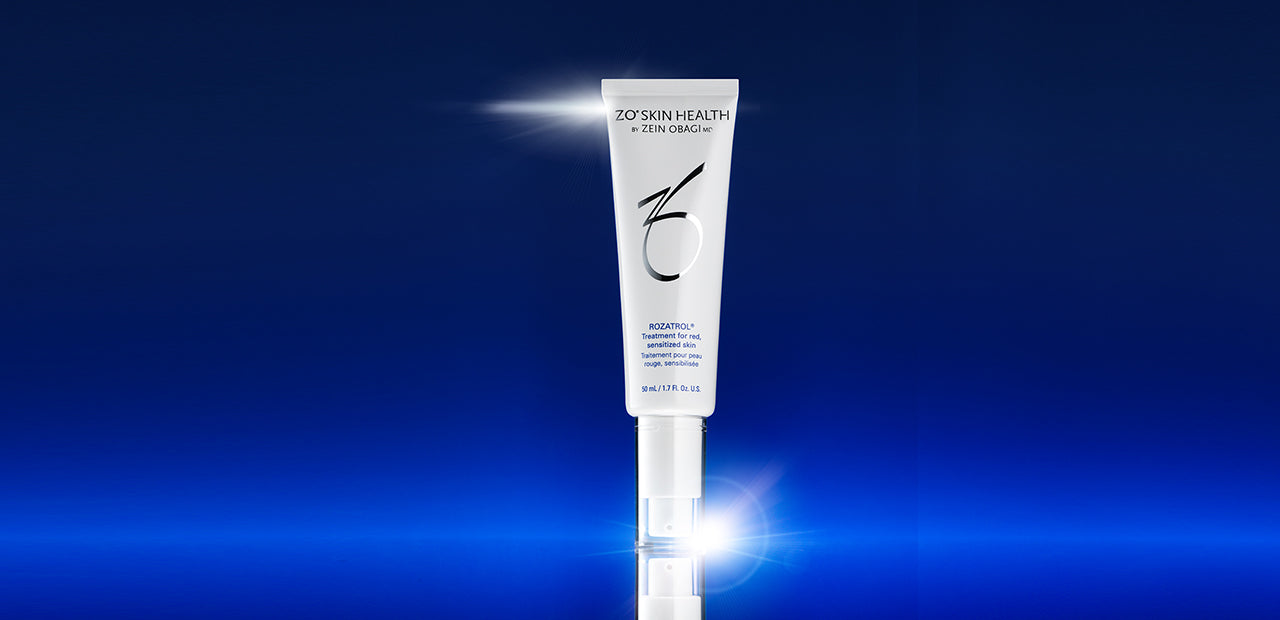April is here and it is Rosacea Awareness Month!
According to The National Rosacea Society (NRS), April has been designated as Rosacea Awareness Month to educate the public on the real effects of rosacea and to dismantle the misconceptions that surround this chronic skin condition.
An estimated 16 million Americans are affected by rosacea, but many patients have never heard of this disease nor do they know the symptoms associated. Rosacea is a chronic skin condition that usually affects the face, often the forehead, nose, cheeks and chin are involved. The cause of rosacea is still unknown and can be developed in many ways and at any age. Even the symptoms of rosacea can vary, but it is often categorized by facial redness, skin thickening, plus facial swelling and visible blood vessels in more advanced cases.
While there is no cure for rosacea, it is still a treatable skin condition. Most patients are prescribed antibiotics due to their anti-inflammatory properties, while others are advised light-therapy, in which light at a specific wavelength is absorbed by the blood vessels in the skin, allowing them to shrink down and improve the skin’s appearance. It is an effective procedure; however, long-term therapy is required.
Patients with rosacea are also urged to identify lifestyle and environmental factors that can be exacerbating flare-ups and redness. This can be anything from diet, stress, or exposure to certain environmental triggers. Alcohol, spicy foods, hot drinks and even dairy can trigger rosacea to flare up, while environmental factors, like sun exposure, can aggravate the condition. Removing or minimizing these triggers from your lifestyle, and managing your exposure to certain elements can help you avoid future discomfort and further irritation.
ROSACEA SKINCARE
The first step to using skincare to treat rosacea is to make an appointment with a physician or skincare specialist. Everyone’s skin is different, even those suffering from rosacea. It’s important to understand what could be the underlying factors and triggers that can cause a flare-up or other discomfort. A dermatologist will help you better understand the best way to treat your skin.
Skincare can either aggravate or soothe red, sensitive skin. It’s important to use products that are soothing, anti-inflammatory and chockful of antioxidants in order to combat free radical damage, which could be damaging the skin’s barrier allowing further irritation.
For example, Rozatrol®—a multi-modal treatment from ZO® Skin Health—helps normalize the skin by relieving the signs of red, sensitized skin. This product contains an advanced amino acid complex to help restore and soothe the skin through hydration. Gentle, exfoliating properties help reduce oil, which can cause inflammation, while an exclusive plant stem cell complex provides powerful antioxidant protection against free radical damage.
If you are looking for a full protocol to treat red, sensitized skin, ZO® Skin Health also offers the Skin Normalizing System—a selection of therapeutic products designed to soothe with hydration and support a healthy skin barrier.
For a customized protocol specifically designed for your skin visit a ZO® physician near you.
To learn more about rosacea and how you could help spread awareness of this skin condition, visit The National Rosacea Society.



